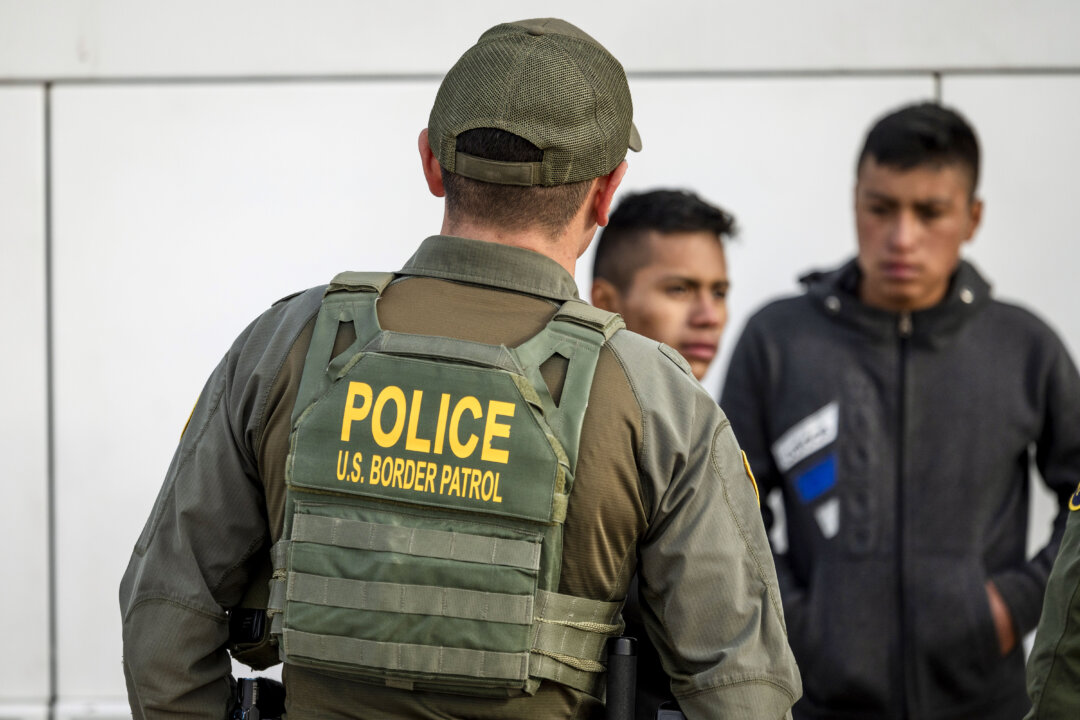The president-elect says that the plan should be initiated ‘no matter the price tag’
President-elect Donald Trump said this week that his incoming administration has “no choice” but to carry out mass deportations of illegal immigrants, regardless of how much it may cost.
Speaking with NBC News on Thursday, the president-elect was asked about how much it would cost to carry out his deportation plan, which he made reference to numerous times during his presidential campaign.
“It’s not a question of a price tag,” Trump said, adding that “really, we have no choice.”
“When people have killed and murdered, when drug lords have destroyed countries. And now they’re going to go back to those countries because they’re not staying here. There is no price tag.”
His campaign had pledged to expel about 11 million people who are not authorized to be in the United States, although Trump himself has said he believes that as many as 21 million are in the country illegally.
“We obviously have to make the border strong and powerful, and we have to—at the same time, we want people to come into our country,” he said before signaling that the United States still needs legal immigrants.
“And you know, I’m not somebody that says, ‘No, you can’t come in.’ We want people to come in.”
Both Democrats and the nonprofit American Immigration Council have been critical of the mass deportation proposal, with the NGO estimating in a report that Trump’s plan may cost as much as $315 billion overall.
In campaign events and media appearances, both Trump and Vice President-elect JD Vance have said that Americans would see longstanding economic benefits from the deportation plan. During his only debate with Minnesota Gov. Tim Walz, Vance said that illegal immigrants are a reason why housing and rent prices have soared across the United States in recent years.
“Kicking out illegal immigrants who are competing for those homes” would help bring down housing costs, Vance said on Oct. 1.
Some economists have disagreed with Vance’s assertions, saying that the increase in housing prices stems from a long period of underbuilding in the United States due to land-use regulations.
But aside from the economic impact, Vance has argued that illegal immigration has devastated parts of the country, including places that are far from the U.S. border with Mexico. Illegal immigrants have overwhelmed schools, hospitals, and other systems across the United States, he’s said on several occasions, including during his debate with Walz, who was Vice President Kamala Harris’s running mate.
“In communities all across this country, you’ve got schools that are overwhelmed, you’ve got hospitals that are overwhelmed, you have got housing that is totally unaffordable because we brought in millions of illegal immigrants to compete with Americans for scarce homes,” Vance said in his lone debate.
Trump has vowed to invoke the Alien Enemies Act, a 1798 law signed by second President John Adams that allows the president to deport any noncitizen from a country the United States is at war with. He has spoken about deploying the National Guard, which can be activated on orders from a governor.
Stephen Miller, a top Trump adviser, has said that troops under Republican governors would be sent to nearby states that refuse to participate.
Amid questions about how such a deportation plan would play out, Vance has said that deporting millions would be done one step at a time, not all at once.
“You start with what’s achievable,” Vance told ABC News over the summer. “I think that if you deport a lot of violent criminals and frankly if you make it harder to hire illegal labor, which undercuts the wages of American workers, I think you go a lot of the way to solving the illegal immigration problem.”
Andrew Arthur, a fellow at the Center for Immigration Studies, which supports immigration restrictions, said that the plan would not be akin to “a dragnet” on illegal immigrants.
“There’s no way you could do it. The first thing you have to do is seal the border and then you can address the interior,“ he said. ”All of this is going to be guided by the resources you have available.”
The Associated Press contributed to this report.

